Discover Better Than Before Breast Cancer with The Breast Cancer Recovery Coach
Better Than Before Breast Cancer with The Breast Cancer Recovery Coach

Better Than Before Breast Cancer with The Breast Cancer Recovery Coach
Author: Laura Lummer
Subscribed: 196Played: 8,606Subscribe
Share
© Copyright 2024 Better Than Before Breast Cancer™ llc, All rights reserved
Description
Laura is a Certified Life, Health, Nutrition Coach, and Wellness professional.
She's a two-time breast cancer survivor living with metastatic disease.
Laura supports women in dropping their warrior shield after a diagnosis and treatment of breast cancer so they can release the pressure to go back to normal and create a life that's even better than before breast cancer.
These twice-weekly episodes give you tools you can apply to your life today, to support your body and your mind as you manage life after breast cancer.
She's a two-time breast cancer survivor living with metastatic disease.
Laura supports women in dropping their warrior shield after a diagnosis and treatment of breast cancer so they can release the pressure to go back to normal and create a life that's even better than before breast cancer.
These twice-weekly episodes give you tools you can apply to your life today, to support your body and your mind as you manage life after breast cancer.
433 Episodes
Reverse
Healing doesn’t begin with shame—it begins with honesty. In this episode, I share why telling yourself the truth is the most powerful first step in creating health and joy after breast cancer. You’ll hear: Why judgment keeps us stuck in old patterns How curiosity creates opportunities for growth A simple framework to reflect on your strengths and challenges My personal story of facing the truth and finding healing When you pair honesty with compassion, you’ll see just how much power you have to create a body you love and a life you trust. Explore more support: Better Than Before Breast Cancer Life Coaching Membership: https://www.thebreastcancerrecoverycoach.com/lifecoaching Creating a Life You Love in 168 Hours a Week: https://www.thebreastcancerrecoverycoach.com/168-hours-sp Let’s Connect! If this episode helped you breathe a little easier, please share it with a friend or leave a review. Every share helps spread this message of hope, healing, and whole-person wellness. 💌 Join my email list for weekly wellness tips & podcast updates → The Breast Cancer Recovery Coach 👩💻 Follow me on Instagram for daily inspiration → @thebreastcancerrecoverycoach 👩💻 Follow me on Facebook → The Breast Cancer Recovery Coach 🎙 Subscribe & leave a review on Apple Podcasts → Better Than Before Breast Cancer with The Breast Cancer Recovery Coach 🎥 Watch on YouTube → @BetterThanBeforeBreastCancer
Biological dentistry goes far beyond cavities and cleanings—it’s about understanding how your mouth connects to your entire body. In this episode, Dr. Toni Engram explains how the oral microbiome impacts inflammation, hormones, digestion, and even healing from chronic illness. We cover: Why dental materials (like mercury fillings and fluoride) matter for long-term health. How to safely approach dental care during cancer treatment. Everyday practices—like nutrient-dense food, flossing, and tongue scraping—that protect oral and systemic health. Listen now and discover how supporting your oral health can support your healing. Learn More About Dr. Toni Engram: Website: https://www.flourish.dental/ Instagram: https://www.instagram.com/drtoniengram Let’s Connect! If this episode helped you breathe a little easier, please share it with a friend or leave a review. Every share helps spread this message of hope, healing, and whole-person wellness. 💌 Join my email list for weekly wellness tips & podcast updates → The Breast Cancer Recovery Coach 👩💻 Follow me on Instagram for daily inspiration → @thebreastcancerrecoverycoach 👩💻 Follow me on Facebook → The Breast Cancer Recovery Coach 🎙 Subscribe & leave a review on Apple Podcasts → Better Than Before Breast Cancer with The Breast Cancer Recovery Coach 🎥 Watch on YouTube → @BetterThanBeforeBreastCancer
Why does it feel so hard to hear yourself when life gets busy—especially during breast cancer recovery? In this episode: The science of stress, sleep, and comfort eating Why white space is not a luxury but a recovery tool Four research-backed ways to restore energy and balance Practical if-then scripts to protect your health this season Explore more support: Better Than Before Breast Cancer Life Coaching Membership: https://www.thebreastcancerrecoverycoach.com/lifecoaching Creating a Life You Love in 168 Hours a Week: https://www.thebreastcancerrecoverycoach.com/168-hours-sp Let’s Connect! If this episode helped you breathe a little easier, please share it with a friend or leave a review. Every share helps spread this message of hope, healing, and whole-person wellness. 💌 Join my email list for weekly wellness tips & podcast updates → The Breast Cancer Recovery Coach 👩💻 Follow me on Instagram for daily inspiration → @thebreastcancerrecoverycoach 👩💻 Follow me on Facebook → The Breast Cancer Recovery Coach 🎙 Subscribe & leave a review on Apple Podcasts → Better Than Before Breast Cancer with The Breast Cancer Recovery Coach 🎥 Watch on YouTube → @BetterThanBeforeBreastCancer
If you’ve ever thought, “I just can’t stop eating sugar,” this episode is for you. I’ll share what I discovered while reviewing 20 nutrition genomic reports from breast cancer survivors—and the surprising genetic commonalities that explain both difficulties with blood sugar regulation and stronger tendencies toward impulsive cravings. You’ll also learn how cancer cells use insulin receptors to fuel their growth, why sugar is about more than just sweets, and how your brain and body work together in the cycle of cravings. Plus, I’ll walk you through The 5 S’s framework—a simple set of tools to calm cravings and create a terrain that supports healing. Listen now and discover how to nourish yourself with more confidence and trust. Explore more support: Better Than Before Breast Cancer Life Coaching Membership: https://www.thebreastcancerrecoverycoach.com/lifecoaching Take the free Sugar Challenge here: https://www.thebreastcancerrecoverycoach.com/sugar Let’s Connect! If this episode helped you breathe a little easier, please share it with a friend or leave a review. Every share helps spread this message of hope, healing, and whole-person wellness. 💌 Join my email list for weekly wellness tips & podcast updates → The Breast Cancer Recovery Coach 👩💻 Follow me on Instagram for daily inspiration → @thebreastcancerrecoverycoach 👩💻 Follow me on Facebook → The Breast Cancer Recovery Coach 🎙 Subscribe & leave a review on Apple Podcasts → Better Than Before Breast Cancer with The Breast Cancer Recovery Coach 🎥 Watch on YouTube → @BetterThanBeforeBreastCancer
Food isn’t just calories—it’s connection. It’s energy from the sun and the soil transformed into nourishment for your body. Yet in our modern world, food often feels like discipline, restriction, or just another task. In this episode, I talk about how to shift your perspective so food once again becomes love—for your body, for your healing, and for your life after breast cancer. Explore more support: Better Than Before Breast Cancer Life Coaching Membership: https://www.thebreastcancerrecoverycoach.com/lifecoaching Creating a Life You Love in 168 Hours a Week: https://www.thebreastcancerrecoverycoach.com/168-hours-sp Let’s Connect! If this episode helped you breathe a little easier, please share it with a friend or leave a review. Every share helps spread this message of hope, healing, and whole-person wellness. 💌 Join my email list for weekly wellness tips & podcast updates → The Breast Cancer Recovery Coach 👩💻 Follow me on Instagram for daily inspiration → @thebreastcancerrecoverycoach 👩💻 Follow me on Facebook → The Breast Cancer Recovery Coach 🎙 Subscribe & leave a review on Apple Podcasts → Better Than Before Breast Cancer with The Breast Cancer Recovery Coach 🎥 Watch on YouTube → @BetterThanBeforeBreastCancer
Stress isn’t just “in your head”—it changes your biology. It depletes nutrients like magnesium, vitamin C, B vitamins, and zinc, and keeps your body in survival mode. Supplements can help, but they won’t heal you if the root cause—stress—remains. In this episode, I talk about why stress management is as critical as nutrition, how CBT and EMDR support your healing, and why lab testing matters before wasting money on supplements. References from this episode: Juster R-P, McEwen BS, Lupien SJ. (2020). Allostatic load and allostatic overload: Clinical implications. Frontiers in Behavioral Neuroscience. https://doi.org/10.3389/fnbeh.2020.00046 Singewald N, et al. (2004). Magnesium-deficient diet alters anxiety-related behavior in mice. Journal of the American College of Nutrition. https://doi.org/10.1080/07315724.2004.10719406 Harrison FE, May JM. (2009). Vitamin C function in the brain: New evidence links ascorbate to neurotransmitter function. Brain Research Bulletin. https://doi.org/10.1016/j.brainresbull.2009.05.018 de Oliveira IJL, et al. (2015). Effects of oral vitamin C supplementation on anxiety in students. Nutrition Journal. https://doi.org/10.1186/1475-2891-14-36 Stough C, et al. (2011). The effects of 90-day administration of a high-dose B-complex vitamin on work stress. Human Psychopharmacology. https://doi.org/10.1002/hup.1190 Singh A, et al. (1991). Effect of acute stress on plasma zinc. Biological Trace Element Research. https://doi.org/10.1007/BF02990385 Hofmann SG, Asnaani A, Vonk IJJ, Sawyer AT, Fang A. (2018). The efficacy of cognitive behavioral therapy: A review of meta-analyses. Frontiers in Psychology. https://doi.org/10.3389/fpsyg.2012.00117 Shaw RJ, et al. (2019). Mindfulness-based stress reduction and CBT for HPA axis habituation. Psychoneuroendocrinology. https://doi.org/10.1016/j.psyneuen.2019.104420 Chen Y-R, Hung K-W, Tsai J-C, et al. (2014). Efficacy of EMDR for PTSD: A meta-analysis. PLoS ONE. https://doi.org/10.1371/journal.pone.0103676 Explore more support: Better Than Before Breast Cancer Life Coaching Membership: https://www.thebreastcancerrecoverycoach.com/lifecoaching Creating a Life You Love in 168 Hours a Week: https://www.thebreastcancerrecoverycoach.com/168-hours-sp Let’s Connect! If this episode helped you breathe a little easier, please share it with a friend or leave a review. Every share helps spread this message of hope, healing, and whole-person wellness. 💌 Join my email list for weekly wellness tips & podcast updates → The Breast Cancer Recovery Coach 👩💻 Follow me on Instagram for daily inspiration → @thebreastcancerrecoverycoach 👩💻 Follow me on Facebook → The Breast Cancer Recovery Coach 🎙 Subscribe & leave a review on Apple Podcasts → Better Than Before Breast Cancer with The Breast Cancer Recovery Coach 🎥 Watch on YouTube → @BetterThanBeforeBreastCancer
Have you ever felt almost afraid to set a boundary—especially with someone you love? You’re not alone. In this episode, I share the story of a client who jokingly called it “boundary phobia” and how that phrase perfectly captures the fear and discomfort so many of us feel when we try to protect our time, energy, or emotional well-being. We’ll talk about: The fears that keep us saying “yes” when we want to say “no” The myths we’ve been taught about boundaries and relationships Why boundaries are about action as much as they are about words How to set healthy boundaries with yourself first—and why that’s the key to holding them with others A short guided reflection to help you identify one internal boundary you can start practicing today If you’ve been feeling drained, resentful, or guilty about saying no, this episode will help you shift the way you think about boundaries so they feel less like walls and more like doors you control. References from this episode: Parents Magazine study on accepting unwanted invitations: https://www.parents.com/why-saying-no-is-good-for-your-mental-health-8415963 Stanford Student Affairs research on boundaries strengthening relationships: https://studentaffairs.stanford.edu/how-life-treeting-you-importance-of-boundaries 2020 study on relational boundaries and enforcement: https://self-compassion.org/wp-content/uploads/2021/11/Luchner-and-Snyder-2020-The-Importance-of-Flexible-Relational-Boundaries-.pdf Mental Health Center on boundaries and burnout: https://www.mentalhealthctr.com/boundaries-and-mental-health Dr. Kristin Neff’s self-compassion research: https://self-compassion.org/the-three-elements-of-self-compassion-2 Resources Mentioned: Better Than Before Breast Cancer Life Coaching Membership: https://www.thebreastcancerrecoverycoach.com/lifecoaching Creating a Life You Love in 168 Hours a Week: https://www.thebreastcancerrecoverycoach.com/168-hours-sp Let’s Connect! If this episode helped you breathe a little easier, please share it with a friend or leave a review. Every share helps spread this message of hope, healing, and whole-person wellness. 💌 Join my email list for weekly wellness tips & podcast updates → The Breast Cancer Recovery Coach 👩💻 Follow me on Instagram for daily inspiration → @thebreastcancerrecoverycoach 👩💻 Follow me on Facebook → The Breast Cancer Recovery Coach 🎙 Subscribe & leave a review on Apple Podcasts → Better Than Before Breast Cancer with The Breast Cancer Recovery Coach 🎥 Watch on YouTube → @BetterThanBeforeBreastCancer
In this heartfelt episode, I share a story of one of my clients who chose to live as if she was cured—even while waiting for a PET scan. Her courage and clarity inspired this conversation about mindset, belief, and the science behind choosing peace in uncertain moments. We’ll explore: The difference between what’s true and what fear tells us The emotional and biological cost of staying in survival mode Studies that show how belief and agency improve healing outcomes How to anchor into peace with simple daily practices Why the story you tell yourself is powerful medicine Plus, I’ll leave you with a reflective journal prompt to help you shift your mindset the next time fear creeps in. This is a must-listen for breast cancer survivors and anyone learning to live in the space between healing and uncertainty. Mentioned Studies: Leedham et al., 1995 – Health Psychology Taylor & Armor, 1996 – Journal of Personality Hack et al., 2005 – Patient Education and Counseling Let’s Connect! If this episode helped you breathe a little easier, please share it with a friend or leave a review. Every share helps spread this message of hope, healing, and whole-person wellness. 💌 Join my email list for weekly wellness tips & podcast updates → The Breast Cancer Recovery Coach 👩💻 Follow me on Instagram for daily inspiration → @thebreastcancerrecoverycoach 👩💻 Follow me on Facebook → The Breast Cancer Recovery Coach 🎙 Subscribe & leave a review on Apple Podcasts → Better Than Before Breast Cancer with The Breast Cancer Recovery Coach 🎥 Watch on YouTube → @BetterThanBeforeBreastCancer
Can you keep eating dairy or sourdough bread during breast cancer recovery—or do they need to go? In this episode, I walk you through the confusing world of food myths and metabolic health, exploring: The difference between A1 and A2 dairy What the research says about dairy and cancer risk Whether sourdough bread is truly blood sugar–friendly How gluten impacts gut health (and what zonulin has to do with it) And the truth behind the “toast your bread to reduce carbs” trend Whether you love yogurt or can’t part with crusty sourdough, you’ll leave this episode with clarity—not guilt. 🧪 Featured Studies: Loma Linda Dairy & Breast Cancer Study (2020): https://doi.org/10.1093/ije/dyaa007 Meta-analysis on Dairy and Cancer Risk (2021): https://www.ncbi.nlm.nih.gov/pmc/articles/PMC8520314/ WCRF Cancer Prevention and Dairy Review (Non-Industry Funded): https://www.wcrf.org/wp-content/uploads/2024/10/Meat-fish-and-dairy-products.pdf Toasting & Glycemic Response Study (Oxford Brookes, 2008): https://pubmed.ncbi.nlm.nih.gov/17426743/ 🎧 Listen now and learn how to make nourishing food choices based on your body, not food labels or fear. Let’s Connect! If this episode helped you breathe a little easier, please share it with a friend or leave a review. Every share helps spread this message of hope, healing, and whole-person wellness. 💌 Join my email list for weekly wellness tips & podcast updates → The Breast Cancer Recovery Coach 👩💻 Follow me on Instagram for daily inspiration → @thebreastcancerrecoverycoach 👩💻 Follow me on Facebook → The Breast Cancer Recovery Coach 🎙 Subscribe & leave a review on Apple Podcasts → Better Than Before Breast Cancer with The Breast Cancer Recovery Coach 🎥 Watch on YouTube → @BetterThanBeforeBreastCancer
Can your thoughts really change your health? In this episode, we explore how belief—both positive and negative—impacts the healing process after breast cancer. Learn what neuroscience, psychology, and real-life coaching reveal about the nocebo effect, the power of belief, and how to gently shift your thinking to support long-term wellness. 💡 In this episode: 🌱 Join The Better Than Before Breast Cancer Membership: https://thebreastcancerrecoverycoach.com/lifecoaching A 2007 study published in Science Used harmless cream + expectation to trigger real pain—with brain scans showing activation in pain perception areas. 🔗 https://www.science.org/doi/10.1126/science.aan1221 American Federation of Teachers+15Science+15Science in School+15 A 2011 study published in The Journal of Neuroscience Found that people warned of negative side effects—even from a sugar pill—experienced those effects, with measurable physiological changes. 🔗 https://www.jneurosci.org/content/33/34/13784 WIREDresearchworks.creighton.edu+15The Journal of Neuroscience+15Nature+15 A 2001 study published in The Lancet Showed patients who believed pain medication would help—even when it was a placebo—experienced real pain relief via endorphin release. 🔗 https://pubmed.ncbi.nlm.nih.gov/80579/ SAGE Journals+6PMC+6Science in School+6 A 2023 study in Frontiers in Psychology Discussed cognitive inertia, explaining why our brains often stick with old thought patterns—even when we try to change. 🔗 https://www.frontiersin.org/articles/10.3389/fpsyg.2023.1243711/full Verywell Mind+5ResearchGate+5WIRED+5Frontiers+2Frontiers+2Frontiers+2 A 1994 study in Journal of Experimental Psychology: Learning, Memory, and Cognition Covered belief perseverance, showing people stick with false beliefs even after receiving clear contradictory evidence. 🔗 https://www.overcominghateportal.org/belief-perseverance.html Frontiers+15overcominghateportal.org+15ResearchGate+15 A 2019 review in Nature Reviews Neuroscience Explored neuroplasticity and how repeating new beliefs and thoughts reshapes brain wiring. 🔗 https://www.nature.com/articles/s41593-023-01514-1 (for related imaging insights) 🔗 https://pmc.ncbi.nlm.nih.gov/articles/PMC7047599/ (neuroplasticity review) Carol Dweck’s 2007 Child Development study Found that those with a growth mindset (believing they could improve) showed greater learning, resilience, and brain adaptability. 🔗 https://srcd.onlinelibrary.wiley.com/doi/10.1111/j.1467-8624.2007.00995.x WIRED+1Verywell Mind+1srcd.onlinelibrary.wiley.com A 2025 imaging-based study summarized in The Guardian Revealed that optimists share similar brain activation patterns in the medial prefrontal cortex when thinking about the future—supporting motivation and planning. 🔗 Article summary: https://www.theguardian.com/science/2025/jul/21/optimists-share-similar-brain-patterns-when-thinking-about-the-future-scans-show Let’s Connect! If this episode helped you breathe a little easier, please share it with a friend or leave a review. Every share helps spread this message of hope, healing, and whole-person wellness. 💌 Join my email list for weekly wellness tips & podcast updates → The Breast Cancer Recovery Coach 👩💻 Follow me on Instagram for daily inspiration → @thebreastcancerrecoverycoach 👩💻 Follow me on Facebook → The Breast Cancer Recovery Coach 🎙 Subscribe & leave a review on Apple Podcasts → Better Than Before Breast Cancer with The Breast Cancer Recovery Coach 🎥 Watch on YouTube → @BetterThanBeforeBreastCancer
In this episode, I’m joined by two extraordinary women: Cheri Henderson, a two-time breast cancer thriver, and Monica Kasari-Desulme, a physical therapist who specializes in cancer rehabilitation and lymphatic drainage. You’ll hear how physical therapy helped Cheri recover from life-limiting pain, chemo brain, lymphedema, and post-surgical complications—and how it gave her the strength to return to the outdoors and active life she loves. 🎧 We dive into: Why physical therapy should be part of your care plan The role of adhesions and scar tissue in post-treatment symptoms What the glymphatic system has to do with chemo brain Compression tips for exercise, flying, and hot weather How to advocate for physical therapy referrals during treatment 🔗 Want more support? Join the Better Than Before Breast Cancer™ Metabolic Health and Mindset Membership or my email list at TheBreastCancerRecoveryCoach.com Follow Cheri on Instagram Follow Monica on Instagram 💌 Want weekly support, new episodes, and wellness tips in your inbox? Join my email list and get resources for healing, hope, and living with intention after breast cancer. 👩💻 Follow me on Instagram for daily inspiration. 👩💻 Follow me on Facebook 🎙 Subscribe & leave a review on Apple Podcasts.
What if the worst day of your life became the one that opened your eyes the most? In this deeply personal episode, I share why I no longer call July 11th my “cancerversary” and instead honor it as my Awakening Day. Fourteen years after being diagnosed with breast cancer, I reflect on how that moment became the catalyst for a life of greater presence, purpose, and peace. We’ll talk about what post-traumatic growth really means, how to reframe a cancer diagnosis as an opportunity for awakening, and 14 powerful lessons that have shaped my life since that day. Whether you’re in the thick of treatment, newly diagnosed, or years out from your own diagnosis, this episode offers hope, healing, and a reminder that your story is still unfolding—and it can be more beautiful than you ever imagined. Keywords: breast cancer recovery, post-traumatic growth, cancerversary, healing journey, mindset after cancer, life after diagnosis, cancer survivor mindset, breast cancer podcast, trauma healing, awakening after illness, cancer support coaching 🎧 In this episode, you’ll hear: 00:00 – Why I call July 11th my Awakening Day 04:35 – What is post-traumatic growth and how it differs from PTSD 08:15 – 14 lessons I’ve learned since my breast cancer diagnosis 17:40 – How to reframe your diagnosis as a spiritual and emotional awakening 22:00 – A message for anyone currently in the middle of their healing journey 25:45 – Closing thoughts on honoring your path and living with intention MENTIONED IN THIS EPISODE: Better Than Before Breast Cancer™ Metabolic Health and Mindset Membership https://www.thebreastcancerrecoverycoach.com/lifecoaching RATE, REVIEW & FOLLOW ON APPLE PODCASTS If this episode inspired you, please consider rating and reviewing the show! Your feedback helps more women find this support and step into healing after breast cancer. CONNECT WITH ME: Website: https://www.thebreastcancerrecoverycoach.com/ Instagram: https://www.instagram.com/thebreastcancerrecoverycoach/ Facebook: https://www.facebook.com/LauraLummerTheBreastCancerRecoveryCoach/
So many women healing from breast cancer are told, “Just cut out sugar,” as if that one step could control everything. But is that really the whole story? In this episode, we take a deep breath and go beyond the fear-based headlines to explore what’s really happening inside your cells. From the basics of cellular fermentation to the Warburg effect, you’ll learn how both glucose and oxygen play critical roles in energy production—and why a multifaceted approach to healing is so important. We’ll talk about: What fermentation means and why your body uses it The real meaning behind the Warburg theory How oxygen, breath, movement, and mindset influence your terrain Why you don’t need to live in fear of food The role of mitochondria and metabolic health in breast cancer recovery You’ll leave this episode with more clarity, less fear, and a deeper appreciation for how your body adapts and communicates. Because healing isn’t about perfection—it’s about creating an environment where your cells can thrive. Key Topics Covered: Cellular fermentation explained in simple terms How oxygen supports healthy metabolism Sugar and cancer: understanding the nuance The Warburg effect, debunked and demystified The power of movement, breath, and whole-body wellness Practical steps to support your healing terrain This episode is perfect for you if: You’ve been confused or anxious about carbs and cancer You’re tired of oversimplified advice like “sugar feeds cancer” You want a grounded, science-backed approach to metabolic health You’re ready to support your healing without fear or restriction Resources & Support: Join the Better Than Before Breast Cancer™ Metabolic Health and Mindset Membership to get weekly guidance, monthly group calls, and a compassionate community that understands your journey. Let’s Connect! If this episode helped you breathe a little easier, please share it with a friend or leave a review. Every share helps spread this message of hope, healing, and whole-person wellness. 💌 Join my email list for weekly wellness tips & podcast updates → The Breast Cancer Recovery Coach 👩💻 Follow me on Instagram for daily inspiration → @thebreastcancerrecoverycoach 👩💻 Follow me on Facebook → The Breast Cancer Recovery Coach 🎙 Subscribe & leave a review on Apple Podcasts → Better Than Before Breast Cancer with The Breast Cancer Recovery Coach 🎥 Watch on YouTube → @BetterThanBeforeBreastCancer Searchable Tags: #BreastCancerRecovery #HealingAfterCancer #GlucoseAndCancer #WarburgEffect #MetabolicHealth #Mitochondria #WholeBodyHealing #CancerAndSugar #FunctionalHealth #OxygenAndHealing
When you're recovering from breast cancer, you're bombarded with advice—some of it rooted in science, some of it based on personal stories. But how do you know what to trust? How do you separate what’s promising from what’s just popular? In this episode, I’ll walk you through how to understand the evidence pyramid—from anecdotal stories to randomized controlled trials—and explain where therapies like the ketogenic diet, ozone therapy, sonodynamic therapy, hyperbaric oxygen, and high-dose vitamin C fall in that landscape. You’ll learn how to make informed, personalized decisions that honor both the science and your lived experience—so you can heal smarter, not harder. What You’ll Learn in This Episode ✅ The 5 levels of scientific evidence explained in simple, everyday language✅ The difference between the ketogenic diet and therapeutic ketosis✅ Where popular integrative therapies rank in terms of research✅ Why anecdotal evidence matters more than you might think✅ How to evaluate whether a therapy is right for your body and your terrain✅ A simple 3-question filter to help you make smart, aligned decisions✅ How to combine personal experience with medical research to build a whole-body healing plan Mentioned Therapies in This Episode Ketogenic diet vs. ketosis Ozone therapy Sonodynamic therapy Hyperbaric oxygen therapy (HBOT) High-dose intravenous vitamin C This Episode Is For You If... You’ve ever been told “there’s no evidence for that” and felt shut down You’re exploring complementary or alternative healing therapies You want to feel more confident and informed in conversations with your care team You believe healing is about more than just treatment—it’s about supporting the whole person Connect With Me Looking for support, structure, and a safe place to explore your next steps after breast cancer? Join us inside the Better Than Before Breast Cancer Metabolic Health and Mindset Membership for guidance, group coaching, and access to trusted integrative tools. Get all the details and Enroll here today 💌 Join my email list for weekly wellness tips & podcast updates → The Breast Cancer Recovery Coach 👩💻 Follow me on Instagram for daily inspiration → @thebreastcancerrecoverycoach 👩💻 Follow me on Facebook → The Breast Cancer Recovery Coach 🎙 Subscribe & leave a review on Apple Podcasts → Better Than Before Breast Cancer with The Breast Cancer Recovery Coach 🎥 Watch on YouTube → @BetterThanBeforeBreastCancer Rate & Review the Show If this episode helped you feel more clear, confident, or just a little more supported, it would mean so much if you left a rating or review on Apple Podcasts. It helps other breast cancer survivors find the show and feel less alone. Keywords for SEO Optimization breast cancer recovery, integrative cancer therapies, ketogenic diet cancer, ketosis vs keto, hyperbaric oxygen therapy cancer, ozone therapy cancer, high dose vitamin C cancer, functional medicine, complementary cancer treatments, evidence-based wellness, post-treatment cancer care, how to evaluate scientific research
If you've ever found yourself hurt, frustrated, or emotionally drained because someone didn’t do what you thought they should—especially after you asked—this episode is for you. In this conversation, I’m talking about a powerful concept I use with my clients all the time, called “the manual.” It’s the invisible rulebook we write in our minds about how other people should behave and what their actions (or lack of action) mean about us. But here’s the catch: no one else has a copy of that manual. And when people don’t follow our unspoken rules, we end up making it mean something painful—like “they don’t care,” or “they don’t love me.” That pain builds up, and it affects our emotional and physical health, especially when we’re healing after something as life-changing as breast cancer. So in this episode, I’m sharing how to spot when you’re living by a manual, how to burn it, and how to replace it with something far more powerful: clear, loving boundaries that support your peace and your healing. 💡 In This Episode, You’ll Hear: What “the manual” is, and how it silently drives your frustration and disappointment Why emotional discomfort often shows up as physical symptoms during healing How to shift from “Why aren’t they doing what I need?” to “Why am I not doing what I need?” The difference between ultimatums and boundaries—and why real boundaries are loving, not selfish A simple 3-step process to help you shift your mindset: Clean up your thoughts, get Curious, and lead with Compassion How to stop letting someone else’s behavior define your emotional well-being 🔬 What the Research Says: I talk about this from both my coaching experience and what the research supports. Cognitive Behavioral Therapy teaches us that our thoughts create our feelings—not just the events that happen. So when someone breaks a rule in our manual, we feel rejected or hurt—but that feeling comes from our interpretation, not the action itself. There’s also great research on assertive communication and emotional boundaries. When we speak up for ourselves in a clear, calm, respectful way, studies show we have less stress, stronger immune systems, and better self-esteem. That’s especially important when you’re focused on healing your body and creating a healthy life after cancer. ✏️ Want to Go Deeper? Here’s a simple journaling prompt from the episode: Where in your life are you expecting someone to follow your manual? What emotions are you attaching to it? And what healthy, loving boundary could you set instead? If you take 15 minutes to write down the rules you’ve created for the people in your life, you might be surprised by what you find—and how much power you have to shift things just by changing your own approach. 💞 Let Me Support You: This is something we work on a lot inside my Better Than Before Breast Cancer™ Metabolic Health and Mindset Membership. If you're ready to stop waiting for other people to “get it” and start showing up for yourself—with clarity, courage, and compassion—you’ll find so much support inside this space. You can join anytime at TheBreastCancerRecoveryCoach.com. Inside the membership, you’ll get access to every workshop, every program, and all of our monthly coaching calls focused on mindset, metabolic health, and living a joyful life beyond breast cancer. Or check out my Becoming You 2.0 program and start getting clarity around what’s stopping you from being the person you want to be and how you can take the first courageous steps in that direction 📌 A Quick Note Before You Go: You don’t have to keep carrying the emotional weight of everyone else’s behavior. You really can set it down, set yourself free, and create a life that feels so much lighter—and more like you. Thanks for listening, my friend. I’ll talk to you soon. Connect with Laura Lummer: 💌 Join my email list for weekly wellness tips & podcast updates → The Breast Cancer Recovery Coach 👩💻 Follow me on Instagram for daily inspiration → @thebreastcancerrecoverycoach 👩💻 Follow me on Facebook → The Breast Cancer Recovery Coach 🎙 Subscribe & leave a review on Apple Podcasts → Better Than Before Breast Cancer with The Breast Cancer Recovery Coach 🎥 Watch on YouTube → @BetterThanBeforeBreastCancer
In this episode of The Breast Cancer Recovery Coach, we’ll dismantle three of the most common—and misleading—nutrition myths that many women encounter after a breast cancer diagnosis. Whether you’re in active treatment or navigating life post-cancer, this conversation offers clarity, compassion, and practical advice rooted in science, not fear. You’ll learn: Why not all carbohydrates are harmful and how whole-food carbs can actually support healing The truth about plant vs. animal foods and how to identify clean, high-quality animal proteins How “organic” and “plant-based” labels can mislead your food choices—and what to look for instead If you've ever felt confused or overwhelmed by nutrition advice, this episode will help you reconnect with your body, make informed choices, and feel confident in the way you nourish yourself. Topics Covered: The real difference between simple and complex carbohydrates How to eat carbs while maintaining stable blood sugar Nutrient density and bioavailability of animal vs. plant foods What qualifies as a clean animal food and why it matters The “health halo effect” of organic and plant-based labels Tips for tuning out food fear and tuning into what works for your body Resources & References: Work with Laura Study: Glycemic load and cancer risk – Nutrition Journal Study: Dietary fiber intake and breast cancer – Annals of Oncology Study: Macronutrient combinations and glycemic response – Diabetes Care Study: Organic labeling and perception – Food Quality and Preference Study: Health halo of plant-based labels – Appetite (2018) Study: Plant-based health halo and risk perception – Appetite (2019) Loved this episode? Share it with a friend or leave a review on Apple Podcasts to help more survivors find compassionate, clear guidance on living well after breast cancer. Connect with Laura Lummer: 💌 Join my email list for weekly wellness tips & podcast updates → The Breast Cancer Recovery Coach 👩💻 Follow me on Instagram for daily inspiration → @thebreastcancerrecoverycoach 👩💻 Follow me on Facebook → The Breast Cancer Recovery Coach 🎙 Subscribe & leave a review on Apple Podcasts → Better Than Before Breast Cancer with The Breast Cancer Recovery Coach 🎥 Watch on YouTube → @BetterThanBeforeBreastCancer
This episode is such an exciting one, and honestly, it might just change the way you think about what you eat—especially if you’ve ever felt confused or overwhelmed about what’s “safe” or supportive after a breast cancer diagnosis. I’m talking about two powerful cellular processes that are important for us to understand: autophagy and angiogenesis. These are what researchers call hallmarks of cancer—but they’re also incredible opportunities for healing. And the best part? You don’t need to fast for days or eat perfectly to support them. You just need to make some smart, loving food and lifestyle choices—and I’ll walk you through what those are. We’ll talk about how to support your body’s natural clean-up system (autophagy) and how to regulate the way your body builds blood vessels (angiogenesis)—all through everyday foods, simple habits, and ditching the all-or-nothing mindset. 🥗 In This Episode, I Share: What autophagy and angiogenesis actually are (in plain English!) How fasting and eating the right foods can both support your healing Why food isn’t just fuel—it’s a daily tool for recovery and wellness Simple swaps to reduce inflammation and feel more confident at mealtime How to find a balance with exercise, rest, and movement that feels supportive, not stressful My personal experience with fasting, fear, and learning to trust food again A brand new 14-day meal plan I created to make this feel easier and doable 🔗 Links & Resources: 💌 Grab your free 14-Day AA Meal Plan 🎧 Want to hear what inspired this episode? Check out the Diary of a CEO podcast with Dr. William Li 🌿 More food and lifestyle tools are waiting for you on my site: TheBreastCancerRecoveryCoach.com Connect with Laura Lummer: 💌 Join my email list for weekly wellness tips & podcast updates → The Breast Cancer Recovery Coach 👩💻 Follow me on Instagram for daily inspiration → @thebreastcancerrecoverycoach 👩💻 Follow me on Facebook → The Breast Cancer Recovery Coach 🎙 Subscribe & leave a review on Apple Podcasts → Better Than Before Breast Cancer with The Breast Cancer Recovery Coach 🎥 Watch on YouTube → @BetterThanBeforeBreastCancer 🧠 Keywords (SEO): breast cancer recovery diet, AA diet, angiogenesis nutrition, autophagy support, breast cancer healthy foods, anti-inflammatory meal plan, intermittent fasting for women, food and cancer healing, polyphenol foods, healthy terrain diet
If you’ve ever looked at a wellness gadget and thought, “Is this really going to help me?”—you’re not alone. In this episode of The Breast Cancer Recovery Coach Podcast, we explore the science behind a popular wellness tool: vibration plates, also known as whole-body vibration therapy (WBV). Whether you’re in recovery from breast cancer, managing post-treatment fatigue, experiencing bone loss, or dealing with sluggish digestion, you’ll discover how this gentle, low-impact tool could support your healing journey. We’ll dive into clinical research, explain how vibration plates work, and walk through the many potential benefits—from muscle strength and bone density to circulation, lymphatic drainage, and yes—even bowel regularity. You’ll also hear practical guidance on how often and how long to use a vibration plate safely and effectively—without overdoing it. In This Episode, You’ll Learn: How vibration therapy works and why it's gaining popularity in recovery and wellness spaces The surprising science-backed benefits for bone density, muscle tone, circulation, and digestive support Realistic guidelines for how often to use a vibration plate for optimal results Why this low-impact tool may be perfect for post-treatment recovery or energy conservation Chapters: 00:00 Introduction to Whole Body Vibration 02:52 Understanding Vibration Plates 06:05 Scientific Insights on Vibration Therapy 09:04 Benefits for Bone Density and Circulation 11:48 Vibration Plates and Weight Management 15:08 Practical Usage and Safety Tips Resources Mentioned: Work with Laura Vibration Plate Platform Muscle Strength & WBV Study Bone Density & Vibration Research Circulation & Nitric Oxide Production Balance & Flexibility Study Weight Management & WBV Review Want More Support? If this episode resonated with you, share it with someone who might benefit. You can also explore more resources and connect with me at TheBreastCancerRecoveryCoach.com. And don’t forget to subscribe so you never miss an episode filled with insights, encouragement, and evidence-based support for healing your body and creating a life you love after breast cancer.. Connect with Laura Lummer: 💌 Join my email list for weekly wellness tips & podcast updates → The Breast Cancer Recovery Coach 👩💻 Follow me on Instagram for daily inspiration → @thebreastcancerrecoverycoach 👩💻 Follow me on Facebook → The Breast Cancer Recovery Coach 🎙 Subscribe & leave a review on Apple Podcasts → Better Than Before Breast Cancer with The Breast Cancer Recovery Coach 🎥 Watch on YouTube → @BetterThanBeforeBreastCancer Keywords for SEO: Breast cancer, vibration plate benefits, whole body vibration therapy, vibration plate after breast cancer, improve bone density naturally, support digestion after cancer, muscle strength post-treatment, lymphatic drainage, cancer recovery tools, low-impact fitness for cancer survivors, fatigue recovery after cancer
Have you ever found yourself standing in front of the pantry during a stressful moment, reaching for something sweet, salty, or crunchy—just to take the edge off? If so, you’re not alone. In this episode of the Better Than Before Breast Cancer podcast, I open up about my own experience with emotional eating during cancer recovery and share gentle, compassionate strategies to help you understand and shift this pattern—without guilt or shame. We’ll explore: -How cortisol (your stress hormone) drives cravings -What emotional triggers might be signaling -How to respond to your body’s needs with love and presence You'll learn mindful, doable ways to support yourself when stress eating feels like the only option, plus calming alternatives that nourish both body and soul. Whether you're fresh out of treatment or navigating long-term survivorship, this episode is a supportive space for reflection, kindness, and taking small steps toward healing. 🔍 What You’ll Learn: Why emotional eating is common The science behind stress, cortisol, and cravings How emotional eating can impact inflammation and recovery Gentle ways to pause, reflect, and respond to cravings Practical “comfort menu” ideas to replace emotional eating Nutrient-rich foods that naturally calm stress and support healing How to build a supportive food environment at home Referred to in this episode: Feel Good Reset Lesson on Foods that Calm The Five Day Sugar Challenge Better Than Before Breast Cancer™ Life Coaching Membership 🧠 Study on Chronic Stress and Inflammation Title: Immunology of Stress: A Review Article Published in: Cureus, 2023 Summary: This review explores how chronic stress impacts the immune system, leading to increased production of pro-inflammatory cytokines like IL-6 and TNF-α. These changes can exacerbate health issues, including those relevant to breast cancer survivors. Full Text: https://www.ncbi.nlm.nih.gov/pmc/articles/PMC11546738/PMC 🧘♀️ Study on Mindfulness-Based Interventions and Emotional Eating Title: Effects of Mindfulness-Based Interventions on Obesogenic Eating Behaviors: A Systematic Review and Meta-Analysis Published in: Obesity Reviews, 2024 Summary: This systematic review and meta-analysis examined the effects of mindfulness-based interventions (MBIs) on various obesogenic eating behaviors, including emotional eating. The findings suggest that MBIs can be effective in reducing such behaviors, which is particularly beneficial for individuals recovering from breast cancer. Full Text: https://www.ncbi.nlm.nih.gov/pmc/articles/PMC11791380/ResearchGate+1PMC+1MDPI+3MDPI+3Wikipedia+3PMC 📣 Share the Love: If this episode supported you, please share it with a fellow survivor or leave a review on Apple Podcasts or Spotify. Your voice helps other women find this healing space. Connect with Laura Lummer: 💌 Join my email list for weekly wellness tips & podcast updates → The Breast Cancer Recovery Coach 👩💻 Follow me on Instagram for daily inspiration → @thebreastcancerrecoverycoach 👩💻 Follow me on Facebook → The Breast Cancer Recovery Coach 🎙 Subscribe & leave a review on Apple Podcasts → Better Than Before Breast Cancer with The Breast Cancer Recovery Coach 🎥 Watch on YouTube → @BetterThanBeforeBreastCancer
In this episode of Better Than Before Breast Cancer, we’re talking about the concept of resistance — a natural, human response to discomfort, fear, and change. Resistance can show up in many forms, whether you're facing a difficult decision, trying to adopt new habits, or navigating life after cancer treatment. But here's the good news: resistance isn’t something to fight. It's a powerful signal that you're on the verge of growth. Let’s talk about: -Why does resistance come up -How can it affect your ability to move forward -How to work with resistance instead of against it I’ll give you practical steps to help you embrace resistance as a natural part of the healing journey and turn it into an opportunity for personal growth. What You’ll Learn in This Episode: Understanding Resistance: Why resistance is a natural and protective mechanism our minds use to avoid discomfort and uncertainty. The Science Behind Resistance: Discover how theories like cognitive dissonance and the Fogg Behavior Model explain why we resist change and how to break free from it. How Resistance Shows Up: Explore the subtle ways we resist without even realizing it, like procrastination, perfectionism, and busyness. Practical Steps to Overcome Resistance: Learn actionable strategies to embrace resistance, including acknowledging it, breaking tasks into smaller steps, and using self-compassion. Self-Determination Theory: Find out how to tap into your autonomy and regain control to make healthier decisions that align with your goals and values. Why Resistance is Part of the Healing Journey: Learn how to reframe resistance as a sign of growth, especially after cancer treatment or any major life change. Key Takeaways: Resistance isn’t your enemy. It’s a natural response to fear and discomfort that can guide you to a better, more resilient version of yourself. Embrace small, manageable steps to break through resistance and make progress, even when it feels challenging. Recognizing subtle forms of resistance, like busyness and perfectionism, can help you break free from inaction. Self-compassion and shifting your mindset are powerful tools to move through resistance with grace. Resources Mentioned in This Episode: · Work with Laura · Fasting Cancer Cognitive Dissonance Theory by Leon Festinger: Psychology Today article The Power of Habit by Charles Duhigg Self-Determination Theory by Deci and Ryan: Learn More The Fogg Behavior Model Call to Action: If you’re feeling stuck or overwhelmed by resistance, remember that you’re not alone. Embrace it as a natural part of your healing journey. Share this episode with someone who may need to hear these messages today. And if you’re ready to take the next step in your healing, consider joining the Better Than Before Breast Cancer֭™ Life Coaching Membership for more support and actionable advice. You’ve got this! Connect with Laura Lummer: 💌 Join my email list for weekly wellness tips & podcast updates → The Breast Cancer Recovery Coach 👩💻 Follow me on Instagram for daily inspiration → @thebreastcancerrecoverycoach 👩💻 Follow me on Facebook → The Breast Cancer Recovery Coach 🎙 Subscribe & leave a review on Apple Podcasts → Better Than Before Breast Cancer with The Breast Cancer Recovery Coach 🎥 Watch on YouTube → @BetterThanBeforeBreastCancer SEO Keywords: resistance, overcoming resistance, cancer recovery, personal growth, overcoming fear, self-compassion, healing journey, resistance in cancer treatment, how to deal with resistance, embrace resistance, cognitive dissonance, self-determination theory, Fogg Behavior Model, mindset shifts, resilience, moving through resistance, breast cancer support


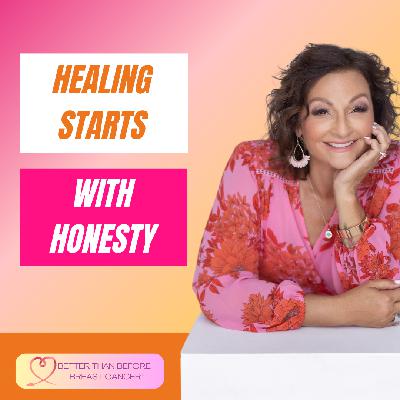
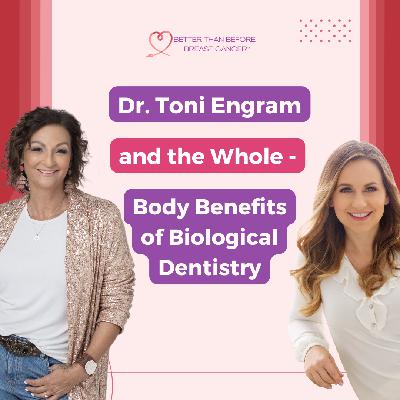
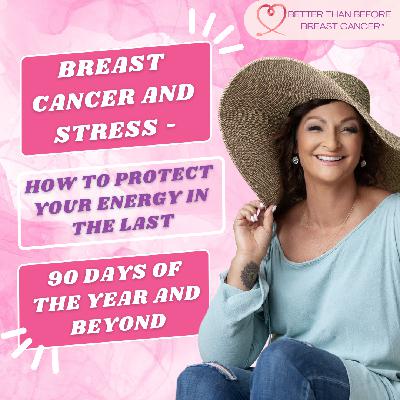
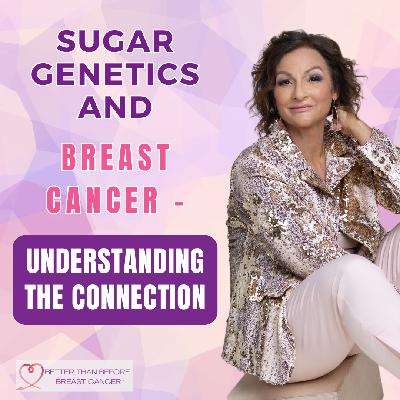
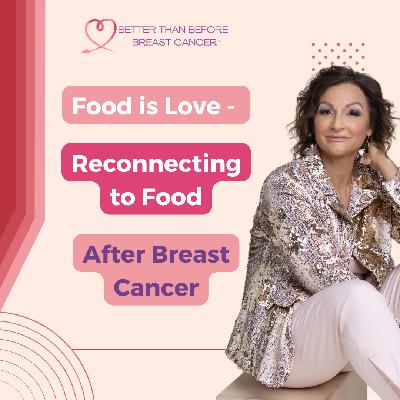
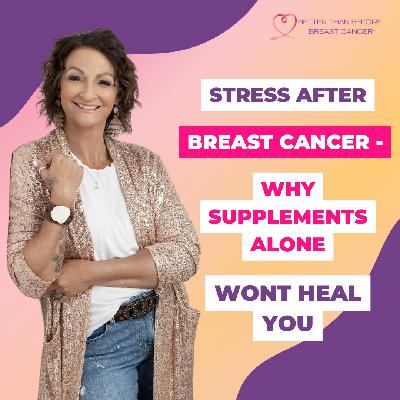
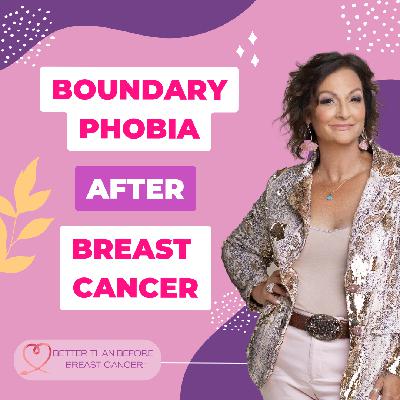
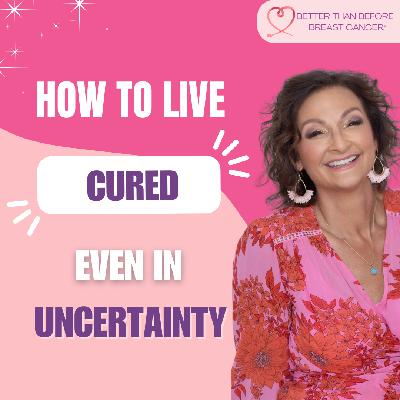
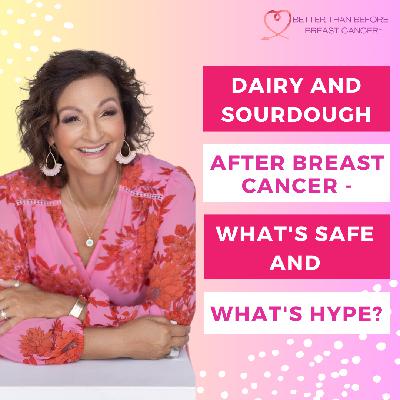
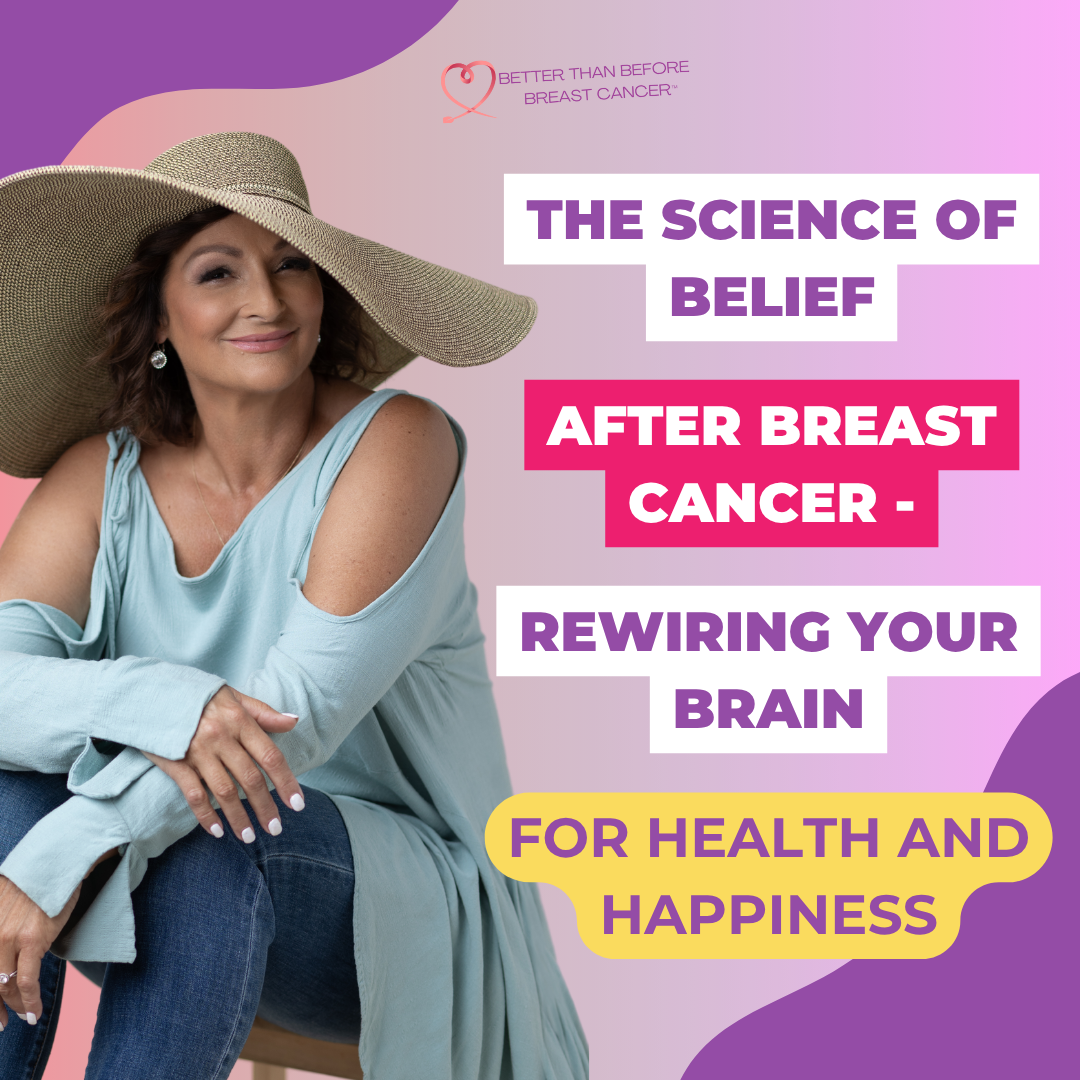
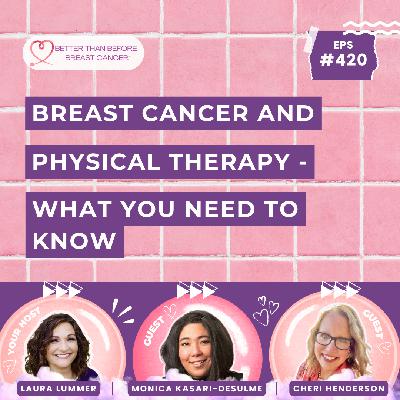
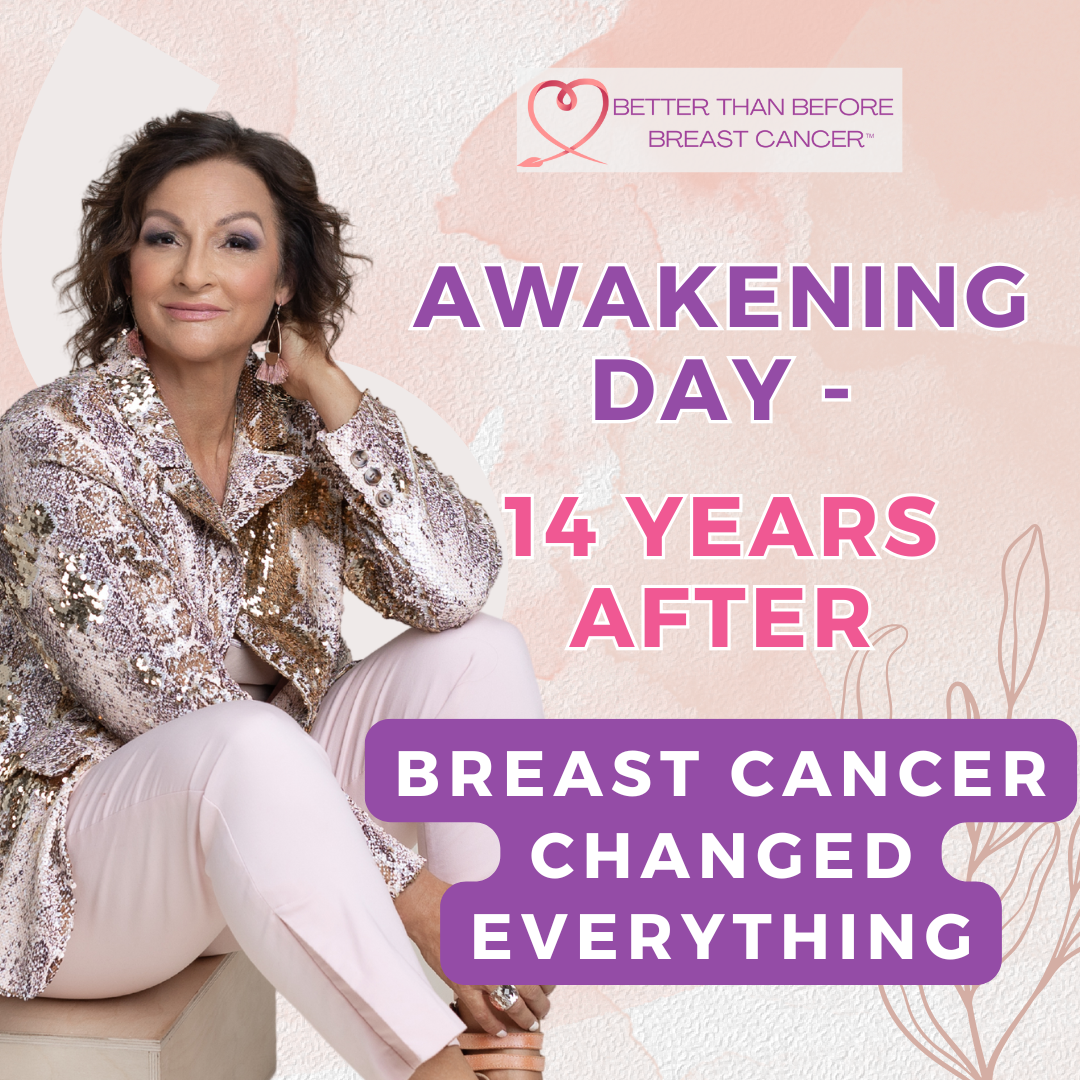
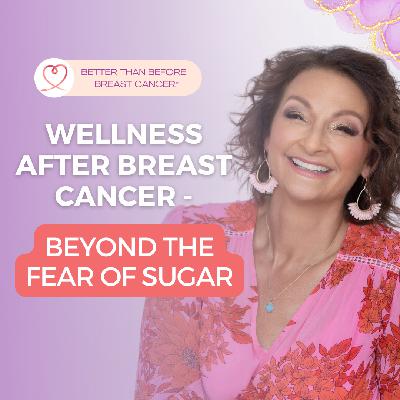
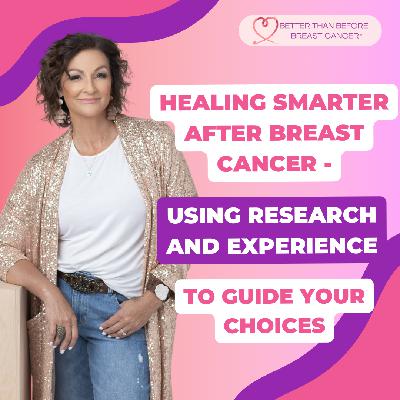
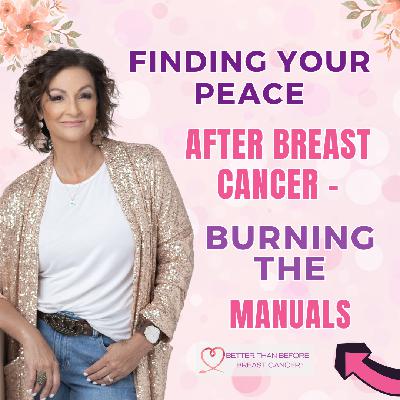
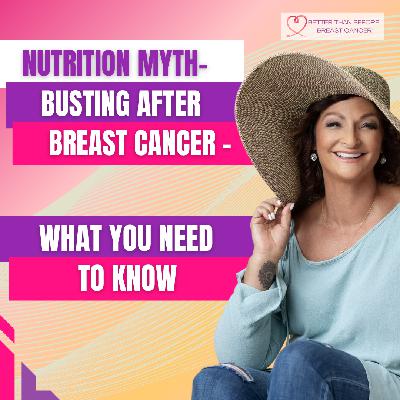
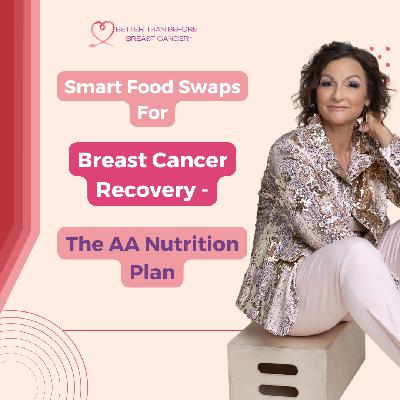
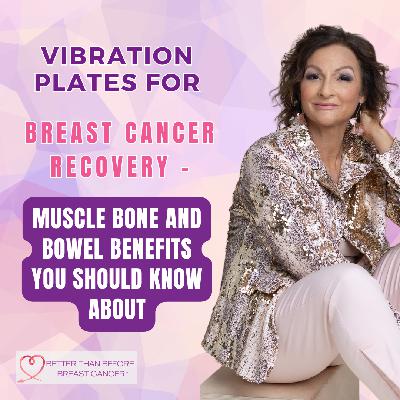
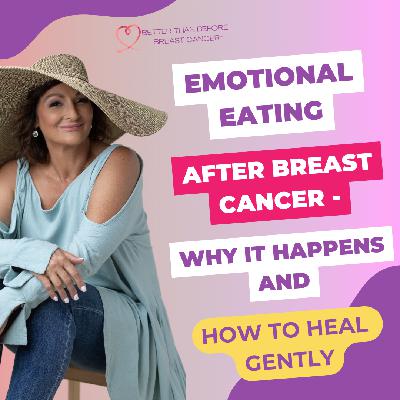
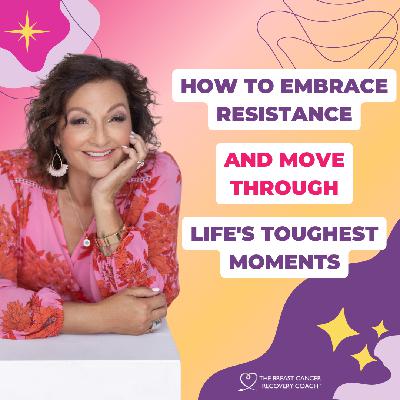



what a milestone to reach. Great to hear what really connected with everyone in the top 10